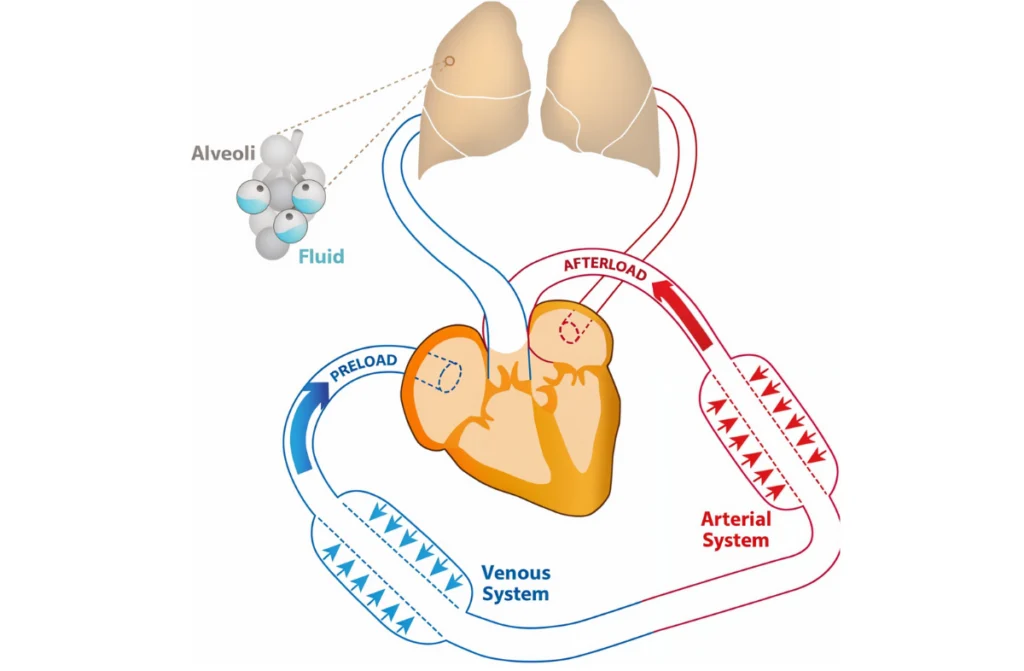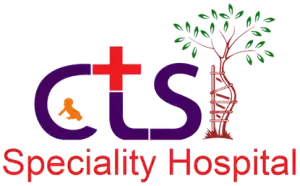Hypertension, commonly known as high blood pressure, is a leading cause of heart failure and cardiovascular complications. Often referred to as the “silent killer,” hypertension can damage the heart and arteries without noticeable symptoms, eventually leading to serious health issues, including heart failure. At CTS Hospitals, we emphasize the importance of understanding hypertension and its link to heart disease. With early detection, proper care, and lifestyle changes, hypertension can be managed, and the risk of heart failure can be significantly reduced.

What is Hypertensive Heart Disease?
Hypertensive heart disease is a term used to describe heart-related complications caused by long-term high blood pressure. Persistent hypertension forces the heart to work harder than normal, causing the heart muscle to thicken, blood vessels to stiffen, and overall cardiovascular health to decline. If left untreated, this can lead to heart failure, coronary artery disease, and other serious conditions.
Key consequences of hypertensive heart disease include:
- Thickening of the heart muscle: The heart’s left ventricle becomes thicker, impairing the heart’s pumping efficiency.
- Reduced vessel elasticity: Blood vessels become less flexible, raising the risk of heart disease.
- Increased heart failure risk: Ongoing high blood pressure makes it harder for the heart to function properly.
At CTS Hospitals, we provide patients with the knowledge and resources to prevent these long-term complications through careful monitoring and treatment.
Types of Hypertensive Heart Disease
Hypertension can lead to a variety of heart conditions that increase the risk of heart failure. The primary types of hypertensive heart disease include:
- Left Ventricular Hypertrophy (LVH): Prolonged hypertension causes the left ventricle, the heart’s main pumping chamber, to thicken, leading to less efficient blood circulation.
- Heart Failure: Due to high blood pressure, the heart’s ability to pump blood weakens, making it difficult for the heart to maintain proper circulation.
- Coronary Artery Disease (CAD): Chronic high blood pressure can damage the arteries, restricting blood flow and increasing the risk of heart attacks.
Recognizing these conditions is critical, as they can worsen over time without proper management.
Prevalence of Hypertensive Heart Disease
Hypertensive heart disease is far more common than most people realize. It is one of the leading causes of heart failure worldwide and affects millions of individuals, especially those with unmanaged or untreated hypertension. The importance of regular blood pressure monitoring cannot be overstated. At CTS Hospitals, we focus on prevention and early intervention to minimize the risks associated with hypertension-induced heart problems.
Key facts about hypertensive heart disease:
- It is a major contributor to global cardiovascular disease.
- Individuals with uncontrolled high blood pressure are at a significantly higher risk of heart-related complications.
- Ongoing monitoring and treatment are essential to reduce the risk of heart failure and other cardiovascular diseases.
At CTS Hospitals, we work with patients to monitor and manage their blood pressure to lower these risks.
Symptoms and Causes
The symptoms of hypertension leading to heart failure can often go unnoticed until the condition has progressed significantly. Uncontrolled high blood pressure puts excess strain on the heart, leading to damage over time. Identifying early signs is crucial to prevent irreversible damage.
Common symptoms of hypertension-related heart issues include:
- Shortness of breath: Often felt during exertion or when lying down.
- Swelling in the extremities: Noticeable swelling in the legs, ankles, or feet due to fluid retention.
- Fatigue: Persistent tiredness or weakness, even after rest.
- Chest discomfort: Pain or tightness in the chest, a sign of heart strain.
These symptoms are warning signs that hypertension is affecting the heart. Early detection and treatment are key to preventing more severe consequences.
Treatment Approaches
Managing hypertension and preventing heart failure requires a multi-faceted approach that includes both medical treatments and lifestyle modifications. At CTS Hospitals, we combine the latest medical interventions with tailored lifestyle advice to help patients effectively manage their condition.
Medications for Hypertension
The right medications are essential in controlling high blood pressure and protecting the heart from further damage. Common medications include:
- ACE Inhibitors: These relax blood vessels, allowing the heart to pump blood more easily.
- Beta-Blockers: These medications help slow the heart rate, reducing the strain on the heart.
- Diuretics (Water Pills): These help eliminate excess fluid from the body, reducing pressure on the heart.
When prescribed by a healthcare provider, these medications can significantly reduce blood pressure and prevent further damage to the heart.
Diet for Heart Health
A heart-healthy diet is a cornerstone of hypertension management. At CTS Hospitals, we recommend a diet rich in vegetables, whole grains, and lean proteins, while avoiding excessive salt, unhealthy fats, and sugars. By reducing salt intake and increasing foods rich in potassium—such as spinach, bananas, and sweet potatoes—you can help regulate blood pressure and support heart health.
Regular Physical Activity
Regular exercise is one of the most effective ways to control high blood pressure and promote heart health. Engaging in at least 30 minutes of moderate activity on most days—whether it’s brisk walking, swimming, or cycling—can help lower blood pressure, improve circulation, and reduce stress on the heart. Additionally, regular exercise helps with weight management, which further alleviates strain on the cardiovascular system.
Stress Management Techniques
Chronic stress can elevate blood pressure, exacerbating hypertension and heart issues. At CTS Hospitals, we emphasize the importance of incorporating stress reduction strategies into daily routines. Techniques such as yoga, deep breathing exercises, and meditation can significantly lower blood pressure and improve overall heart health. In addition, balancing work and personal time, spending time with loved ones, and engaging in relaxing activities can contribute to reducing overall stress levels.
Preventing Hypertension-Related Heart Failure
The best way to prevent hypertension from leading to heart failure is by actively managing blood pressure and adopting healthy lifestyle habits. At CTS Hospitals, we guide patients on how to incorporate the following preventive measures into their daily lives:
- Maintain a healthy, balanced diet: Focus on fresh fruits, vegetables, whole grains, and lean proteins while avoiding processed foods and excess salt.
- Exercise regularly: Aim for at least 30 minutes of moderate exercise on most days to support cardiovascular health.
- Limit salt and alcohol consumption: Both of these can contribute to high blood pressure.
- Practice stress management: Engage in relaxation techniques, such as mindfulness, yoga, and deep breathing.
By following these steps, individuals can significantly reduce the risks of hypertension and protect their heart from further damage.
Conclusion
Hypertension is a major risk factor for heart failure, but with proactive care, the risks can be reduced. By understanding the relationship between high blood pressure and heart disease, and taking steps such as regular blood pressure monitoring, medication adherence, a balanced diet, exercise, and stress management, you can protect your heart health. At CTS Hospitals, we’re dedicated to helping you maintain optimal heart health with personalized care and expert guidance.
